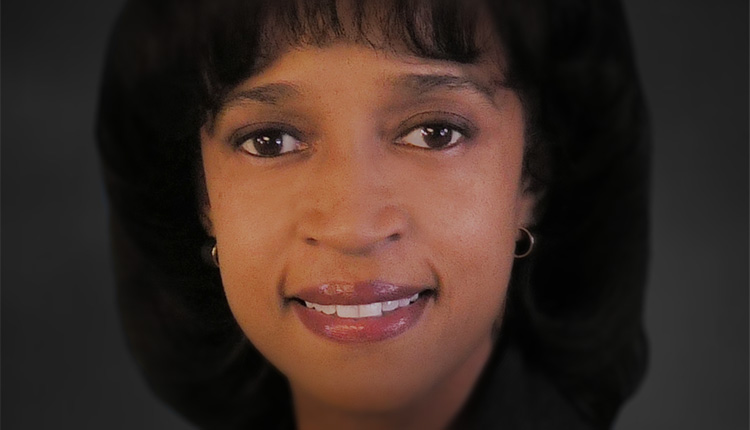We hear from Sherrin Ingram, who explores the philosophy and expertise she brings to bear as an executive coach.
Can you share your journey and qualifications as an executive coach, including your background and areas of expertise?
My journey to becoming an executive coach was a unique combination of legal practice, strategic planning, and leadership development. After practicing law, I transitioned to strategic planning consulting, where I saw the need for strong leadership in executing business strategies. Over time, I added executive coaching to my portfolio, earning accreditations from the International Coaching Federation (ICF) and the Board Certified Coach (BCC). As a coach, I specialize in strategic leadership, talent optimization, communication, and executive presence, which are all vital to set the vision and direction of any organization, while bringing a legal analytical mindset to my coaching practice.
What led you to pursue a career in executive coaching and ultimately launch The International Center for Strategic Planning?
I launched the International Center for Strategic Planning to help leaders develop actionable strategies holistically. I was drawn to executive coaching after witnessing first-hand how pivotal leadership is to the successful execution of a strategic plan. We help companies craft actionable strategies and empower their leaders with the skills and mindset needed to execute those strategies effectively. To that end, we focus on nurturing skills that are not innate but must be intentionally cultivated over time, such as foresight, decision-making, and effective communication.
Can you describe your coaching philosophy and approach? What are the key principles or techniques you utilize in your coaching sessions?
My coaching philosophy revolves around the premise that every executive has the potential to become a highly effective leader with the right mindset and support. I use a mix of techniques, including active listening, powerful questioning, and personalized feedback, to help leaders communicate effectively, collaborate seamlessly, and adapt to change, all of which are critical to executing strategic plans. Our overarching goal is to help leaders gain a deeper understanding of their leadership style, challenge their assumptions, and stimulate their intentional growth.
How do you establish rapport and build trust with your executive clients, particularly if the executive has been forced by management to attend?
Trust is the cornerstone of my coaching relationship. Even when an executive is mandated to attend, I create a safe, non-judgmental space for open dialogue. In addition, I firmly believe in confidentiality due to my attorney background, and I ensure my clients that our discussions are private. Over time, this commitment to their growth fosters trust and engagement.
How do you assess the needs and goals of your executive clients? What methods do you use to understand their strengths, weaknesses, and areas for development?
To assess clients’ needs and goals, I use various tools, including psychometric assessments, our proprietary Actionable 360 feedback, and one-on-one interviews. I also pay close attention to their communication style, problem-solving approach, and interaction with others. This holistic approach to understanding their strengths, weaknesses, and areas for development helps me craft a customized approach for each leader.
How do you design and implement coaching programs for executives? What strategies do you employ to help them set realistic goals and track progress over time?
After assessing an executive’s needs and goals, I design a customized coaching program. This includes setting realistic, measurable goals aligned with the organization’s vision and strategic objectives and the client’s personal and professional aspirations. I encourage regular self-reflection and provide ongoing feedback, allowing them to track and celebrate progress over time.
How do you address common challenges that executives may face, such as managing stress, leading teams, making tough decisions, or navigating career transitions?
Addressing common executive challenges requires a blend of coaching and strategic planning. I help executives develop stress management techniques, improve their decision-making skills, and enhance their team leadership capabilities. For career transitions, I offer guidance on personal branding, network-building, and leadership in new roles.
Can you provide examples of successful coaching engagements with executives, including how you helped them achieve their desired outcomes or overcome specific obstacles?
An example of a successful engagement involved a CEO who faced difficulties in the area of change management. Specifically, he was faced with restructuring the company after only taking on the CEO role six months earlier. During our customized coaching sessions, we collaborated to devise an intricate strategic blueprint for the restructure. This included designing a talent optimization strategy that focused on elevating the skills and capacities of his team, building robust engagement with stakeholders by establishing trust and open communication channels, and creating a detailed roadmap that ensured consistent execution.
By following our approach, the CEO led the change initiative while enhancing the company’s adaptability and resilience. Moreover, the effectiveness of the talent optimization strategy played a significant role in retaining their high-performing employees, thereby preserving the company’s competitive advantage across their key markets.
In your opinion, why is a coaching intervention so business-critical?
In today’s dynamic business environment, coaching is critical for nurturing leadership skills that directly impact the execution of strategies. It improves decision-making, fosters a culture of continuous learning, and helps leaders adapt to change. In these ways, an executive coach is not just a sounding board but a strategic catalyst for individual and organizational growth.
How do you measure the effectiveness of your coaching interventions? How can ‘soft skills’ be measured?
Measuring coaching effectiveness can be both qualitative and quantitative. I use tools like self-assessment questionnaires, feedback from peers and subordinates, and tracking specific KPIs. While ‘soft skills’ are harder to quantify, communication, leadership, and decision-making improvements can translate into tangible business outcomes.
IN A NUTSHELL: My unique blend of legal investigative insight, strategic planning expertise, and Board Certified coaching skills offers a distinct advantage for executives seeking to optimize their leadership potential. By focusing on both the strategic and human elements of leadership, I help empower executives to drive success for themselves and their entire organizations.
“Our mission is to help leaders succeed.”











